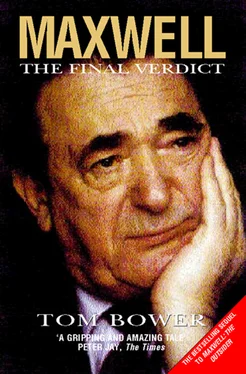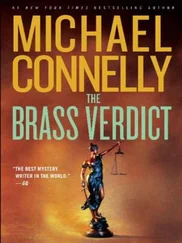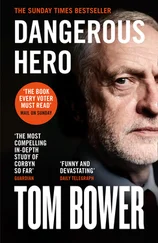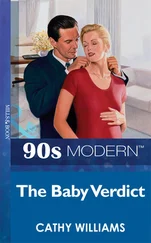The plan was finalized precisely one year before he mysteriously died.
Concorde landed at New York’s JFK airport six minutes late on 5 November 1990. Among the forty-nine passengers gliding self-assuredly off the supersonic flight from London at 9.26 a.m. was Ghislaine Maxwell, the twenty-eight-year-old daughter of the media billionaire. Elegantly dressed and wearing a distinctive hat, Ghislaine was blessed as Robert Maxwell’s youngest and favourite child. But even to her father’s most loyal employees, the thin, would-be socialite was condemned as arrogant and a beneficiary of her father’s fame and power. ‘She’d ask for a cigarette and walk out with the packet,’ complained Carol Bragoli, a secretary.
That morning she seemed more purposeful than usual. Robert Maxwell had entrusted her with a mission to carry an envelope across the Atlantic. Stepping into a chauffeured limousine, she was whisked to 200 Park Avenue in Manhattan. Awaiting her on the twenty-eighth floor was Ellis Freedman, an elderly lawyer who worshipped her father and had served his interests for nearly forty years. Ushered into the waiting room, the messenger handed over the envelope. There was no reason for the young woman to be suspicious. Yet, unknowingly, she had become enmeshed in a plan, initiated by her father, to steal $200 million.
Eleven days earlier, at 8 a.m. on 25 October, Kevin Maxwell, the thirty-one-year-old joint managing director of the Maxwell empire, had met Albert Fuller, the thirty-nine-year-old accountant responsible for the empire’s treasury. Like all of Maxwell’s most trusted employees, Fuller’s qualification for his well-paid position was his tolerance of abuse dispensed around the clock by the tycoon. Deliberately, even cynically, Maxwell had gathered in his inner sanctum apparatchiks who were not only beholden to him but even adulated him. Although technically competent, they were weak men attracted to a father-figure. Fuller was especially grateful to Maxwell. Two years earlier, he had been involved in the loss of a banker’s draft worth £4.7 million but had been exonerated and allowed to resume work after several weeks’ suspension.
Fuller did not query Kevin’s instruction to fly immediately to New York. His tasks seemed simple. From one office he was to retrieve a share certificate numbered B1001, bearing 10.6 million shares in Berlitz, the famous international language school. Then he was to travel to another office and there exchange the single document, worth over $200 million, for nine certificates of varying denominations. There was little cause for Fuller to be suspicious about that effortless transaction. Kevin’s request was not illegal and his need for discretion was understandable. Berlitz was owned (with 56 per cent of the shares) by the American Macmillan publishing company, which in turn was owned by Maxwell Communication Corporation (MCC) – the public company, still 60 per cent owned by the founder himself, which aspired to dominate the world’s exploding media industry. By 30 October, Fuller had returned to London, his mission accomplished.
Six days later, an hour before Ghislaine’s arrival in New York, Robert Maxwell telephoned Ellis Freedman, his lawyer. The instructions again seemed straightforward. Ghislaine, said Maxwell, would be bringing an envelope with nine share certificates showing Macmillan’s ownership of the Berlitz shares. Freedman was to secure their reissue in twenty new certificates of 500,000 shares each and one for 600,000 shares. But, said Maxwell, there was to be one significant variation. The new certificates should not mention Macmillan’s ownership. Instead, each certificate was to be issued showing the owner as Bishopsgate Investment Trust (BIT), with the inscribed caveat ‘Purely as a nominee’. Even in Maxwell’s strictly compartmentalized world, Freedman ought to have been suspicious. For BIT was a private company owned by Maxwell. To the inquisitive, the laundering would not have been well disguised.
The legal authority for that exchange was to be an executive committee board meeting to be held in Freedman’s office later on the same day. The participants were three Macmillan directors: Robert and Kevin Maxwell, and David Shaffer, Macmillan’s American president and its chief operating officer in New York. None of the three men, however, was in Manhattan.
The ‘meeting’ occurred at 11.15 a.m. New York time. The two Maxwells were ‘present’ by telephone from London while Shaffer spoke from Stouffers’ Hotel in Westchester, New York State. According to the telephone records, the conference call lasted eleven minutes. One year later, Shaffer would claim to have been duped and would dispute Freedman’s official record. ‘Either I was not told the true purpose of the board meeting,’ he protested, ‘or there was a telephone connection but I was not involved.’
At the end of that day, 5 November 1990, Ellis Freedman handed the twenty-one new share certificates to Ghislaine. By then the youngest Maxwell had varied her plan. Robert Maxwell had agreed that his daughter, instead of flying immediately back to London, could stay in New York overnight. After indulging herself in Manhattan’s shops, Ghislaine met friends for dinner. The following morning, she boarded a Jumbo 747 for the return flight. That night, the envelope was deposited in Robert Maxwell’s personal safe, located in the bathroom of his penthouse apartment on the tenth floor of Maxwell House, adjacent to the Daily Mirror building in Holborn (he had bought the Mirror Group in 1984). He now possessed $200 million, the property of unsuspecting shareholders, for his personal use. That had been precisely his intention.
Two days later, on 8 November, Kevin Maxwell sat in his office, smiling at Julie Maitland, a thirty-year-old banker employed by Crédit Suisse. Over the previous months, Kevin had been assiduously wooing the dark-haired woman, who some would judge in retrospect to be naive and lacking imagination. Like most of the banking fraternity in London, Maitland had eagerly offered her services to the Maxwells and had succumbed to flattery when invited to join what Kevin called the ‘inner circle’ of core banks acting for the family group. Like other bankers, she understood that the Maxwell companies were suffering a financial squeeze. But the truth, cleverly disguised by the Maxwells from the star-struck woman, was worse. The empire was hovering on the verge of bankruptcy and Kevin was hunting for gigantic loans to tide it over. His smiles for Julie Maitland, a wilful adjustment to his customary cold demeanour, were designed to perpetuate that deception and to entice the Swiss bank to lend the Maxwells even more money.
Naturally, the young woman could not act independently. Every discussion with Kevin had been carefully noted and reported in detail, first to her London superiors and then to the bank’s head office in Zurich. ‘The Maxwells want us to understand the private companies,’ Maitland had written plaintively six months earlier about the web of 400 different corporate names through which the Maxwells operated. And there was so much to understand.
Robert Maxwell had always yearned to manage a publicly quoted company, not just for the prestige but, more pertinently, to enable him to play with other people’s money. The Maxwell Communication Corporation was that tool, marred though it was for him by a colossal defect: the legal requirement for public accountability. For a man whose love of publicity went hand in hand with a pathological desire for secrecy, the desire for a publicly quoted company seemed illogical. But the sophist’s empire was designed to fool the honest inquirer. MCC sat at the centre of an utterly confusing and ever changing matrix of private and therefore secret companies. At the very top were a group of Liechtenstein trusts, anonymous and unaccountable owners of the majority of MCC’s shares. In reality, they were controlled by Maxwell. Beneath those Liechtenstein trusts and surrounding MCC like a constellation were 400 private companies of varying sizes and activity, trading with MCC and among themselves, not only in all matters of publishing, communications, printing and technology, but also in property, currencies, gilts and shares.
Читать дальше












